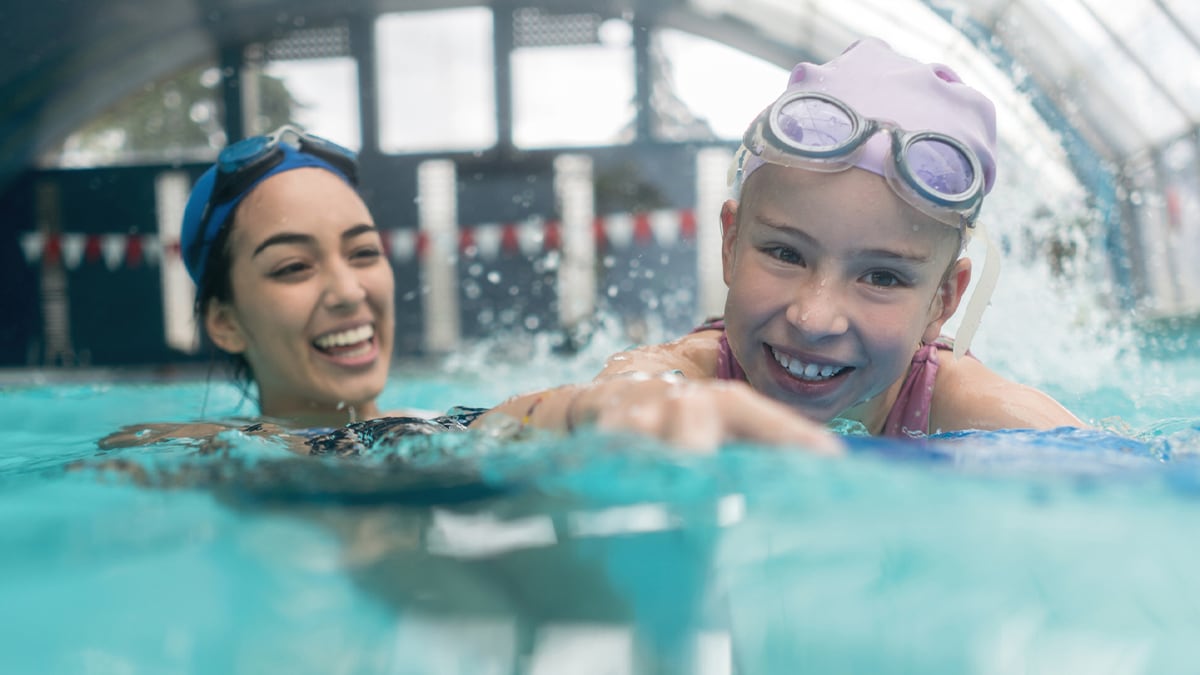Key points
- Germs in recreational water can cause illnesses.
- Recreational water is water where people swim, play, or relax -- like pools, hot tubs, splash pads, oceans, lakes, and rivers.
- Take steps every time you swim to prevent these illnesses.

Overview
The most common swimming-related illnesses are diarrhea, skin rashes, swimmer's ear, pneumonia or flu-like illness, and irritation of the eyes or respiratory tract.
You can get swimming-related illnesses if you swallow, have contact with, or breathe in mists of water contaminated with germs. You can also get swimming-related illnesses by having contact with chemicals that are in the water or inhaling chemicals that evaporate from the water and turn into gas in the air.
Outbreaks of diarrhea are the most common swimming-related illness outbreaks. People who are sick with diarrhea can spread diarrhea-causing germs to others if they have diarrhea in the water. If others swallow the contaminated water, they can become infected. Chemicals (chlorine or bromine) inactivate or kill most germs in properly treated water within minutes; Crypto (short for Cryptosporidium) can survive for more than 7 days.
Risk factors
Children, pregnant people, and people with weakened immune systems are most at risk for swimming-related illnesses.
Recreational water might be contaminated with Crypto, which can cause life-threatening symptoms in people with weakened immune systems. These individuals should consult their healthcare provider before participating in recreational water activities, such as swimming.
How to prevent swimming-related illnesses
Pools, hot tubs, and water playgrounds with proper chlorine or bromine levels and pH are less likely to spread germs. Injuries and drownings are less likely when trained staff and adequate safety equipment are present.
Before you get in
- Check latest inspection results on the state or local health department website or on-site.
- Make sure the drain at the bottom of the deep end is visible. Check that the drain covers appear to be secured and in good condition.
- Check for lifeguard(s):
- If on duty, the lifeguard(s) should be focused on swimmers and not distracted.
- If no lifeguard is on duty, find the location of the safety equipment, such as a rescue ring or pole.
- If on duty, the lifeguard(s) should be focused on swimmers and not distracted.
- Make sure no chemicals are out in the open.

Check yourself
- Stay out of the water if you are sick with diarrhea. If you have been diagnosed with Crypto, don't go back in the water until two weeks after diarrhea has completely stopped.
- Stay out of the water if you have an open cut or wound (particularly from a surgery or piercing). If you do go in the water, use waterproof bandages to completely cover the cut or wound.
- Shower before you get in the water. Rinsing off in the shower for just one minute removes most of the dirt or anything else on your body that uses up chlorine or bromine needed to kill or inactivate germs.

Once you are in
- Don't pee or poop in the water.
- Don't swallow the water.
- Use well-fitting, Coast Guard-approved life jackets, not air-filled toys (for example, water wings), for flotation assistance.
- Keep an eye on children at all times. Kids can drown in seconds and in silence.
- Take kids on bathroom breaks and check diapers every hour.
- Change diapers away from the water to keep germs from getting in.
- Change diapers away from the water to keep germs from getting in.
- Dry ears thoroughly after swimming.

If you are at an ocean, lake, or river:
- Check for beach or lake closure information on your state or local government website or signs on-site.
- Cloudy water can be a warning that there are more germs in the water than normal.
- Stay out if you see any pipes draining into or around the water.
- Wash your hands for 20 seconds before eating food, especially if you have been playing in or touching sand. If soap and water are not available, use an alcohol-based hand sanitizer that contains at least 60% alcohol. Hand sanitizer might not be as effective when hands are visibly dirty or greasy, so wiping sand off before using it might be helpful.

